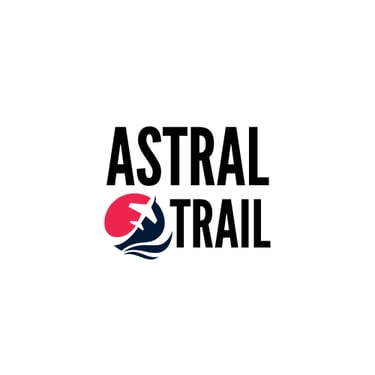Canada Open Work Permit 2025: Eligibility, New Rules & How to Apply
Canada has long been one of the most attractive destinations for international students, skilled workers, and families seeking new opportunities abroad. Its welcoming immigration policies and strong economy make it a preferred choice for Nigerians and many others worldwide.
9/18/20255 min read


Canada Open Work Permit 2025: Eligibility, New Rules & How to Apply
Introduction
Canada has long been one of the most attractive destinations for international students, skilled workers, and families seeking new opportunities abroad. Her welcoming immigration policies and a strong economy make it a preferred choice for Nigerians and many others worldwide. Among the most sought-after immigration options is the Open Work Permit (OWP), which gives applicants the flexibility to work for nearly any employer in Canada without being tied to one specific job or organization. However, beginning January 21, 2025, Canada introduced major changes to the eligibility requirements for OWPs, particularly affecting family members of international students and foreign workers. These adjustments aim to streamline Canada’s immigration system, reduce the number of temporary residents, and align work permit approvals with the country’s labor market needs. Understanding these new rules is critical for anyone hoping to live, study, or work in Canada in the coming years.
What Makes the Open Work Permit Unique
Unlike employer-specific work permits, which bind applicants to a single job and require a Labour Market Impact Assessment (LMIA), the Open Work Permit offers unparalleled flexibility. Holders of OWPs can work for almost any employer across different provinces and industries, switch jobs when better opportunities arise, and in some cases, use their Canadian work experience to apply for permanent residency later on. For spouses, students, and other temporary residents, this type of permit reduces uncertainty and provides a smoother pathway into the Canadian workforce. It has historically been a lifeline for families who want to stay together while one partner studies or works in Canada, but the 2025 changes significantly redefine who can access this benefit.
Key Changes Introduced in 2025
The most notable adjustments affect spouses and dependent children of international students and temporary foreign workers. Previously, many family members were eligible for OWPs regardless of the program of study or type of employment. Now, the rules are much stricter. Dependent children are no longer eligible in most cases, while spouses are only eligible if their partner meets specific program or occupation requirements. For example, spouses of international students must now prove that their partner is enrolled in a Master’s program lasting at least 16 months, a doctoral program, or certain professional programs at a Designated Learning Institution. Similarly, spouses of foreign workers can only qualify if their partner is employed in high-demand, high-skilled occupations classified under TEER 0 or 1, and in some TEER 2 or 3 categories that Canada prioritizes, such as health care, construction, and applied sciences. Furthermore, the foreign worker’s permit must have at least 16 months of validity remaining at the time of application. These stricter rules are meant to ensure that only those contributing to Canada’s long-term needs benefit from open work opportunities.
Who Can Still Benefit from the OWP
Despite the tightened restrictions, several groups remain eligible. International students who complete their studies at a recognized institution can still apply under the Post-Graduation Work Permit (PGWP) program, which allows them to gain Canadian work experience. Spouses or common-law partners of qualifying students and workers also remain eligible, provided their partner’s academic or occupational category falls within the new guidelines. Additionally, applicants for permanent residency can access a Bridging Open Work Permit, which allows them to continue working while waiting for their permanent residence application to be finalized. Refugees, asylum seekers, and individuals facing abuse or exploitation at work also fall under special exemptions, reflecting Canada’s humanitarian approach. These categories show that while Canada is narrowing access, it is not closing the door entirely; instead, it is focusing on applicants who are most aligned with its policy priorities.
Groups That No Longer Qualify
The new rules also mean that several groups who previously had access are now excluded. Most notably, dependent children of foreign workers are no longer eligible to obtain an OWP. This represents a significant change for families that once relied on the permit to allow older children to work while studying or living in Canada. Similarly, spouses of international students enrolled in shorter programs (under 16 months) or non-eligible fields will not qualify. Spouses of foreign workers in lower-skilled or non-priority occupations, such as TEER 4 or 5 jobs, are also excluded. For many families, this may require re-evaluating plans for moving to Canada together or considering alternative pathways like study permits, visitor visas, or direct applications for permanent residency. These restrictions reflect Canada’s broader goal of managing temporary resident numbers and ensuring the system remains sustainable.
Eligibility Requirements & Documentation
For those who still qualify, the application process demands careful preparation. Applicants must show proof of their legal relationship to the primary permit holder, such as a marriage certificate or evidence of a common-law partnership. They must also provide supporting documentation showing their partner’s valid study or work permit, proof of enrollment in an eligible program (for students), or employment in a qualifying occupation (for workers). In addition, applicants will need a valid passport, biometrics, medical examinations if required, and proof of financial stability. Importantly, the foreign worker or student’s permit should still have sufficient validity, typically a minimum of 16 months, at the time of application. Ensuring accuracy in these documents is critical since incomplete applications are often delayed or rejected, which could disrupt family and career plans.
Step-by-Step Application Process
Applying for an Open Work Permit in 2025 involves several steps. First, applicants must determine their eligibility under the updated rules to avoid wasted effort. Once eligibility is confirmed, they should gather all required documents, including proof of relationship, their partner’s permit, and enrollment or employment letters. Applications are generally submitted online through the official IRCC portal, where applicants also pay the required processing fees. Depending on the applicant’s country of origin, biometrics may be mandatory, and applicants may also be asked to complete a medical exam before approval. After submission, applicants should track their status online and ensure they maintain their legal status in Canada while awaiting a decision. Those already in Canada may need to apply for restoration of status if their existing permit is close to expiring. While processing times vary, applicants can improve their chances by submitting a thorough and error-free application.
Conclusion
Canada’s Open Work Permit program in 2025 reflects the government’s effort to balance openness with sustainability. By narrowing eligibility, Canada hopes to reduce the surge of temporary residents while still providing opportunities for those in priority fields, students in advanced academic programs, and families contributing to the country’s labor market and long-term growth. For Nigerians and other international applicants, this means a more competitive and carefully regulated environment, where thorough preparation and accurate documentation are more important than ever. While some families may feel the impact of the new restrictions, others will continue to benefit from the flexibility and opportunity that an OWP provides. Ultimately, Canada remains a top destination for work and study, and with the right strategy, applicants can still secure valuable opportunities in 2025 and beyond.
We are here to guide you to your dream destination: Connect with us on:
📞 Call/WhatsApp: +234 912 799 6321, +234 707 795 3867
📧 Email: contact@astraltrailng.com
📱 Instagram & Facebook: @astraltrail
🌐 Website: astraltrailng.com
Destinations
Astral Trail is an expert educational consultancy and travel agency that provides consulting services to study and relocate abroad. We are continually expanding our capabilities and reach on a daily basis.
© Astral Trail 2025. All rights reserved.


Phone: +2349127996321, +2347077953867
Email: contact@astraltrailng.com
Address: 10 Wale Osoba Close, Martins,
Akute, Ifo LGA, Ogun state, Nigeria, 112005
